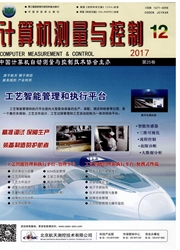

 中文摘要:
中文摘要:
Recently,fault or health condition prediction of complex systems becomes an interesting research topic. However,it is difficult to establish precise physical model for complex systems,and the time series properties are often necessary to be incorporated for the prediction in practice. Currently,the LS-SVR is widely adopted for prediction of systems with time series data. In this paper,in order to improve the prediction accuracy,accumulated generating operation( AGO) is carried out to improve the data quality and regularity of raw time series data based on grey system theory; then,the inverse accumulated generating operation( IAGO) is performed to obtain the prediction results. In addition,due to the reason that appropriate kernel function plays an important role in improving the accuracy of prediction through LS-SVR,a modified Gaussian radial basis function( RBF) is proposed. The requirements of distance functions-based kernel functions are satisfied,which ensure fast damping at the place adjacent to the test point and a moderate damping at infinity. The presented model is applied to the analysis of benchmarks. As indicated by the results,the proposed method is an effective prediction one with good precision.
 英文摘要:
英文摘要:
Recently, fault or health condition prediction of complex systems becomes an interesting research topic. However, it is difficult to establish precise physical model for complex systems, and the time series properties are often necessary to be incorporated for the prediction in practice. Currently, the LS-SVR is widely adopted for prediction of systems with time series data. In this paper, in order to improve the prediction accuracy, accumulated generating operation (AGO) is carried out to improve the data quality and regularity of raw time series data based on grey system theory; then, the inverse accumulated generating operation (IAGO) is performed to obtain the prediction results. In addition, due to the reason that appropriate kernel function plays an important role in improving the accuracy of prediction through LS-SVR, a modified Gaussian radial basis function (RBF) is proposed. The requirements of distance functions-based kernel functions are satisfied, which ensure fast damping at the place adjacent to the test point and a moderate damping at infinity. The presented model is applied to the analysis of benchmarks. As indicated by the results, the proposed method is an effective prediction one with good precision.
 同期刊论文项目
同期刊论文项目
 同项目期刊论文
同项目期刊论文
 期刊信息
期刊信息
